A partner’s infidelity is never an easy thing to go through. But it can be infinitely worse when it’s your sibling they have anaffairwith.
Unfortunately, that’s what happened tothis redditor. She turned to the ‘AITAH’ community, sharing her story about how her sister had an affair with her now soon-to-be ex-husband and fell pregnant with his child.
Things didn’t take long to go south for the new mother, though, as she soon became homeless and had no other choice but to ask for her sister’s help. But the latter wasn’t keen on helping her out for obvious reasons. She did, however, wonder if that made her a jerk.
Scroll down to find the full story below, where you will also findBored Panda’sinterviews with a licensed counselor and expert in families facing transitions,Dr. Suzanne Degges-Whiteand a board-certified clinical psychologist and author of theLetting Go of Your Ex,Dr. Cortney S. Warren, who were kind enough to share their thoughts on how infidelity can affect the people involved and their relationship.
RELATED:

Image credits:LightFieldStudios (not the actual photo)
This woman’s sister had an affair with her husband and then asked for her help when things went south

Image credits:Getty Images (not the actual photo)

Image credits:Fantastic_Car3747
“When a partner engages in an affair with a close friend or family member, the impact can be magnified exponentially,” expert says
Even though it’s something many people would not want to admit, infidelity is, unfortunately, not that uncommon. Discussing the topic withBored Panda, the board-certified clinical psychologist and author ofthe bookLetting Go of Your Ex, Dr. Cortney S. Warren, noted that,a recent studyexamining rates of reported extramarital sx (in a US sample of over 22,000 people from 1991-2018) revealed that close to 17% of respondents admitted to having sx with someone other than their husband or wife while married.
“Rates of cheating were consistently higher for men than women, and individuals who were divorced were 2-3 times more likely to report infidelity in their relationships than people who were still married,” she said. “Importantly, these estimates are likely an underrepresentation of infidelity rates because many people don’t want to admit cheating behavior openly.”
According to Dr. Warren, the discovery of an affair is a pivotal point in aromantic relationship– often a very painful one or even traumatic. The expert pointed out that people tend to share certain common experiences after learning about a partner’s infidelity, which include shock and disbelief, strong emotional reactions (such as anger, shame, humiliation, and sadness), and a shift in the entire way they view their partner and their relationship, often because there were many lies and betrayals that occurred to have the affair itself.
In a recent interview with Bored Panda, another expert, a licensed counselor and expert in families facing transitions, Chair and Professor at the Department of Counseling and Higher Education at Northern Illinois University, Dr. Suzanne Degges-White, noted that infidelity is one of the most serious violations of relational or marital trust; and trust is the essential glue in any healthy relationship. “Without trust, the bond between two people cannot hold fast,” she said. “When a couple makes a commitment to one another, fidelity is typically an assumed—if not explicit—aspect of the commitment. It can be a blow from which a partner and a relationship cannot recover.
“Most of us assume family loyalty is a given and we also assume that close friends would not choose to hurt us. Losing a partner as well as a family member or friend can be devastating and it can be very difficult to ever rebuild trust with that friend or family member again.”
Dr. Warren seconded the idea that when thecheateris having a relationship with a family member or a close friend, the impact of it all—including the person’s reaction to the affair—can be even stronger. “Not only is the reaction generally intense to the cheating partner, but in these situations, there is also a strong reaction to the other person—the mistress or cheating partner—because they have a separate relationship with each of them. This double betrayal makes it increasingly emotionally and practically hard because they will have to decide how they want to proceed in both relationships.”

Not everyone can forgive the wrongdoings of the people they love or loved
According to the expert, if said person is especially “needy” or their support network is particularly thin, they might think that they can’t sacrifice the relationship they had with the family member or friend who exploited their trust. “This can be a sad situation in which a person sacrifices their dignity in order to cling to people,” Dr. Degges-White said, adding that if a person is especially forgiving of others, though, they may decide to try and rebuild the relationship with the person who wronged them.
Even though some people are able to let go of resentment, and accept others in their imperfect states, it might not be easy to do when theaffairresults in a pregnancy. “When a child is involved, there may be even less tolerance for the cheating family member or friend due to the constant reminder of infidelity that the child would be,” Dr. Degges-White noted.
“If someone is unable to forgive, cutting all ties might be in their own best interest as well as that of the child. If a person knows that they would be unable to engage with the young child in a kind or caring manner, it may be best to keep the child from contact with that person. With family relationships, rather than friendships, the family tie will always exist; navigating family situations may require delicacy and there may be people (parents or other sibs, for example) who cannot comprehend why the bond cannot be mended. This can cause ripples of ill will to flow throughout the family.”

Image credits:Claudia Wolff (not the actual photo)
Even if they are family, it can sometimes be best to cut ties with certain people who’ve wronged you
In the delicate situation such as the one the OP found herself in, some people might side with her parents; they might argue that ‘family is family’ and it’s important to take care of each other no matter what. But is it always best to forgive or help someone just because they’re family?
“Everyone has their own tolerance level for bad behavior and every family has its own ‘unspoken rules’ for what family members can expect and must accept from one another. Sometimes, though, these rules must be broken when a person’s sense of self, self-respect, dignity, and mental health are at risk,” Dr. Degges-White noted, sharing her opinion on the matter.
“Forgiveness is about letting go of resentment and anger you hold for someone,” she continued. “Forgiveness is more about self-healing, rather than making someone else ‘feel better.’ It’s okay to forgive someone for their missteps and wrongs, but that does not mean you have to accept them back into your life. Sometimes forgiving someone leads us to accepting that our lives are better without that person – either present in our lives or as a weight on our minds that continues to kindle anger and resentment.”
“Whether you choose to stay with your mate or with your friend or sibling is a very different question. Only you can know whether you want to help someone who had an affair with your spouse and if or how you want them in your life,” the expert added.

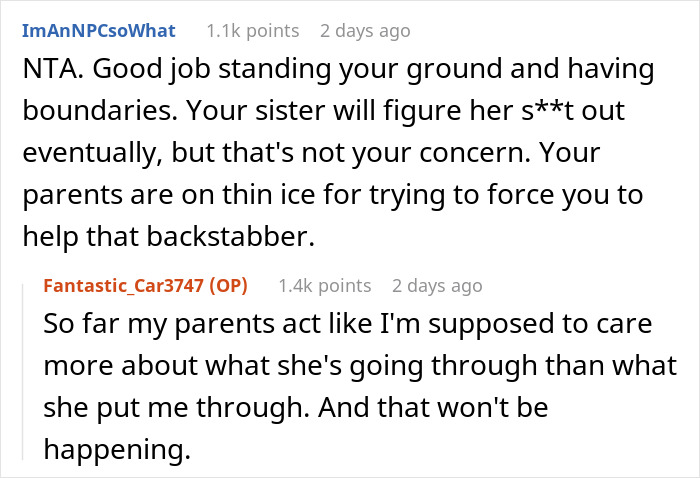



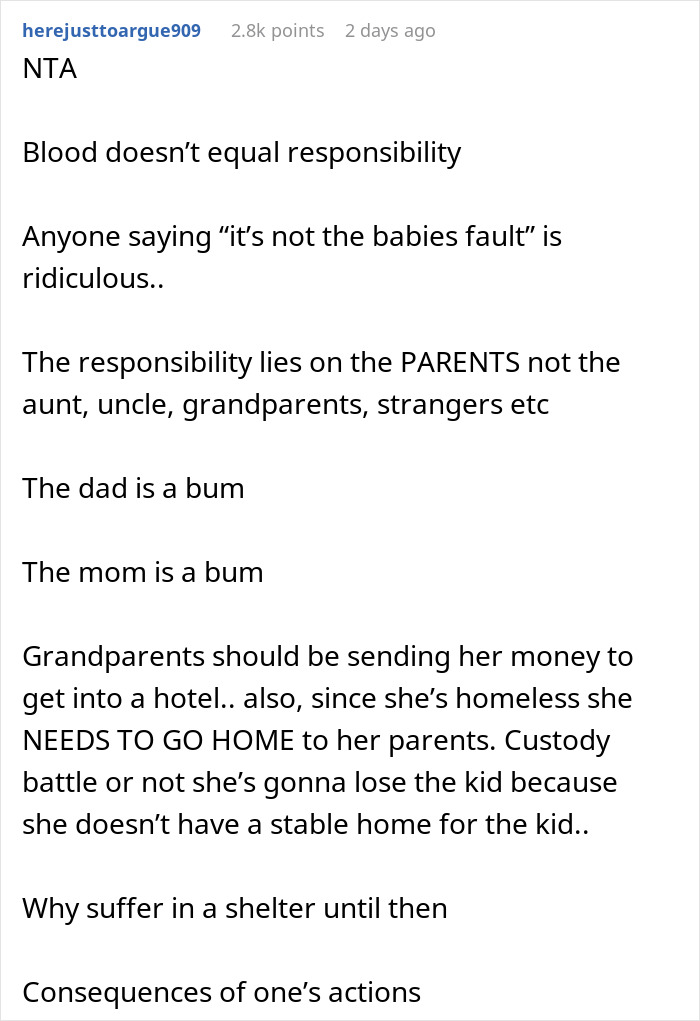

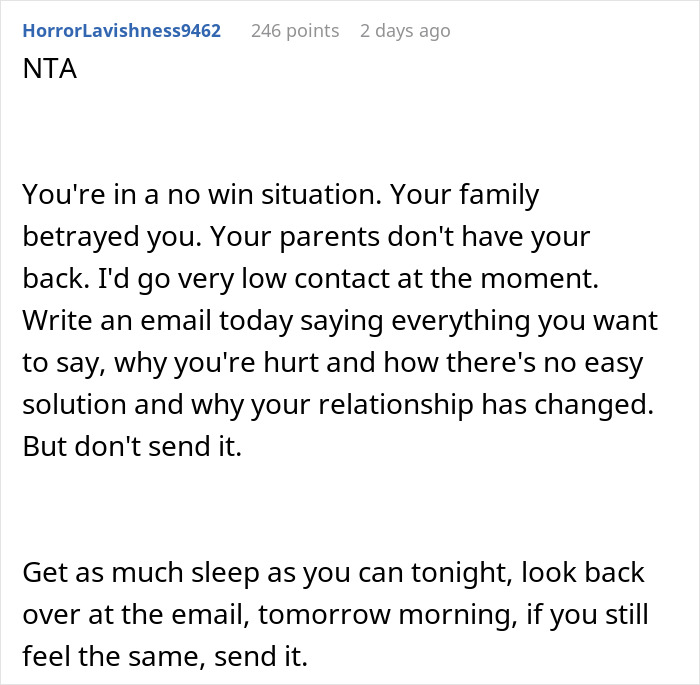















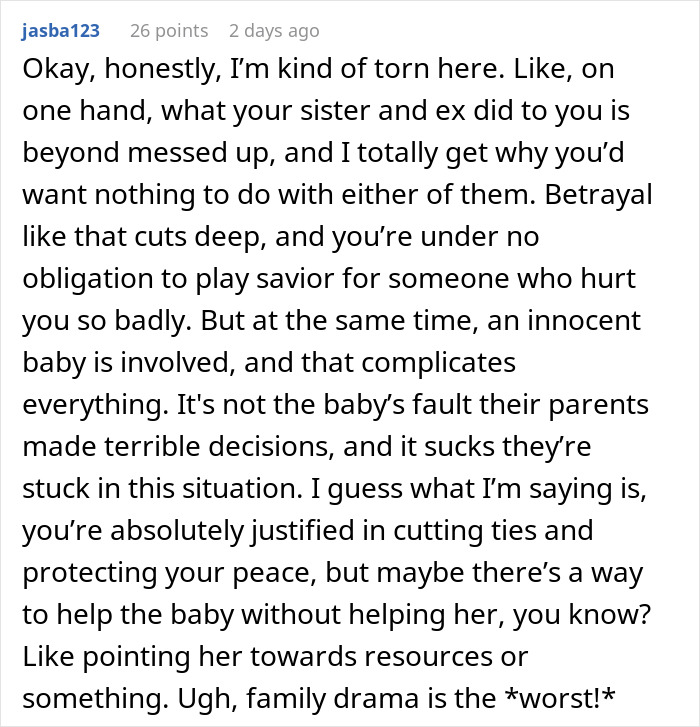
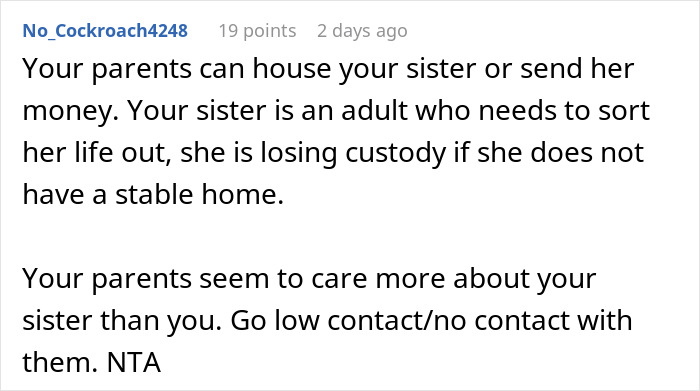
Thanks! Check out the results:You May Like“My Marriage Seems To Be Over”: Man Admits To A 6-Year Affair, Learns Truth About WifeMantas Kačerauskas“AITA For Banning My Husband From All Doctor Appointments After He Repeatedly Messes With Me?”Viktorija OšikaitėMom Realizes Husband’s Lies Run Deep After Their Child Accidentally Exposes His Secret AbsenceMantas Kačerauskas
Mantas Kačerauskas
Viktorija Ošikaitė
Relationships